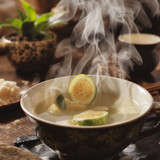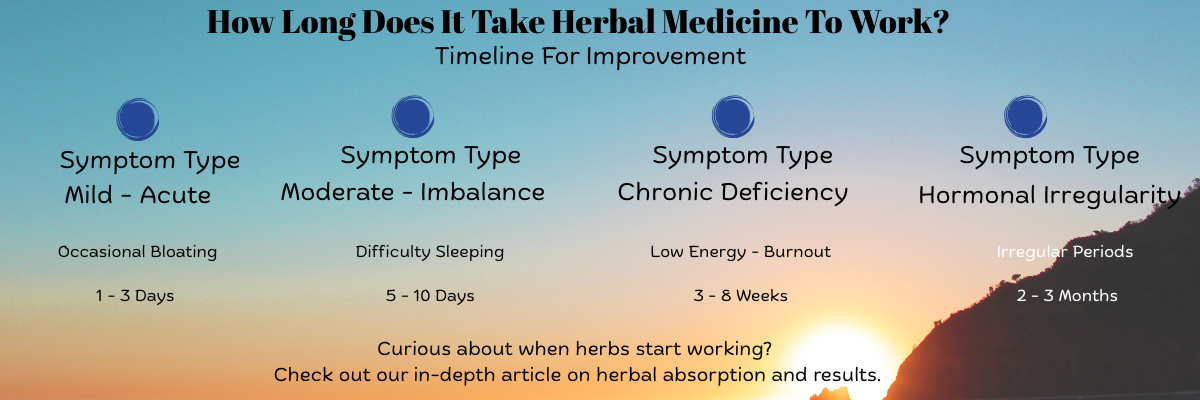

Starwest Botanicals
Organic White Tea Bags
White Tea Bags vs. Green Tea: Why They’re Different White tea and green tea come from the same plant—Camellia sinensis—but they’re made differently. That difference in processing is why white tea...
In the evolving landscape of health and wellness, there's a growing interest in natural remedies that align with both traditional wisdom and modern science. Bai Zhu (Atractylodes macrocephala) stands out as a prime example, revered in Traditional Chinese Medicine (TCM) for its spleen-strengthening properties and now gaining attention in contemporary research for its diverse health benefits.
In TCM, Bai Zhu is classified as a spleen-tonifying herb, primarily used to:
Strengthen the spleen and augment Qi (vital energy)
Dry dampness and promote water metabolism
Stabilize the exterior to stop sweating
Calm the fetus during pregnancy
These functions make Bai Zhu a staple in formulas addressing digestive disorders, fatigue, edema, and other conditions related to spleen deficiency.
Modern phytochemical analyses have identified several bioactive constituents in Bai Zhu, including:
Sesquiterpenoids: Such as atractylenolide I, II, and III, known for their anti-inflammatory and anticancer properties.
Polysaccharides: Exhibiting immunomodulatory and antioxidant activities.
Polyacetylenes: Contributing to the herb's antimicrobial effects.
These compounds underpin many of Bai Zhu's therapeutic effects observed in both traditional use and modern studies.
Bai Zhu has demonstrated efficacy in improving digestive function by:
Enhancing gastric emptying and intestinal motility
Modulating gut microbiota composition
Strengthening the intestinal barrier function
These effects contribute to its use in treating conditions like diarrhea, bloating, and poor appetite.
Polysaccharides extracted from Bai Zhu have shown immunostimulatory effects, including:
Enhancing macrophage activity
Promoting lymphocyte proliferation
Modulating cytokine production
Such properties suggest potential benefits in boosting overall immune function.
Atractylenolides in Bai Zhu exhibit significant anti-inflammatory and antioxidant activities, which may:
Reduce oxidative stress
Inhibit pro-inflammatory cytokines
Protect against chronic inflammatory conditions
Studies have indicated that Bai Zhu's constituents can:
Induce apoptosis in certain cancer cell lines
Inhibit tumor growth and metastasis
Enhance the efficacy of conventional chemotherapy agents
These findings point to its potential role as an adjunct in cancer therapy.
Bai Zhu can be consumed in various forms:
Decoctions: Traditional method involving boiling the herb to extract its active compounds.
Powdered Extracts: Convenient for mixing into teas or smoothies.
Capsules/Tablets: Standardized doses for consistent intake.
It's often included in classic TCM formulas like Si Jun Zi Tang and Xiao Yao San, tailored to address specific health concerns.
Preparation of Bai Zhu:
Blanch the Chicken:
Making the Soup:
Cooking:
Seasoning:
Serving:
Enjoy your cooking!
While Bai Zhu is generally considered safe, it's important to:
Consult with a qualified healthcare practitioner before starting any herbal regimen.
Be cautious if you have conditions like yin deficiency with heat signs, as Bai Zhu's drying nature may exacerbate symptoms.
Monitor for any allergic reactions or side effects.
Bai Zhu enhances digestive strength by improving the spleen’s ability to transform food and fluids. It supports gut motility, reduces bloating, and alleviates loose stools by drying dampness and tonifying Qi.
Yes—when used under the guidance of a licensed herbalist or TCM practitioner, Bai Zhu is commonly included in daily herbal formulas for long-term spleen support. However, daily use should be tailored to your specific body constitution and needs.
Yes, Bai Zhu is traditionally used to calm the fetus in cases of threatened miscarriage due to spleen deficiency. However, it should only be used during pregnancy under professional supervision.
Bai Zhu has a mildly bitter and sweet taste with a warm, dry nature. It is often decocted with other herbs to balance its properties and improve palatability.

Tea/Decoction: Best for spleen deficiency with dampness
Powder: Convenient for daily tonic use
Capsules/Tablets: Easy and dose-controlled for long-term wellness
Tincture: Fast-absorbing, great for people with weak digestion
Key bioactive components include:
Atractylenolides I, II, and III (anti-inflammatory, anticancer)
Polysaccharides (immune-enhancing)
Flavonoids and polyacetylenes (antioxidant, antimicrobial)
Here's a comparison of Bai Zhu (Atractylodes macrocephala) with three other traditional Chinese herbs: Gan Cao (Licorice root), Dang Shen (Codonopsis pilosula), and Bai Wei (Cynanchum atratum).
| Herb Name | Scientific Name | Primary Benefits | Common Uses | Flavor Profile |
|---|---|---|---|---|
| Bai Zhu | Atractylodes macrocephala | Strengthens the spleen, boosts energy, promotes digestion | Soups, tonics, herbal formulas | Slightly bitter, sweet |
| Gan Cao | Glycyrrhiza uralensis | Harmonizes other herbs, soothes the throat, anti-inflammatory | Herbal teas, cough syrups, soups | Sweet |
| Dang Shen | Codonopsis pilosula | Tonifies the spleen, boosts energy, supports immune function | Soups, herbal formulations, energy tonics | Mildly sweet, earthy |
| Bai Wei | Cynanchum atratum | Clears heat, cools blood, promotes urination | Herbal teas, decoctions for fevers or infections | Bitter, slightly sweet |
These herbs can be utilized together in various formulations to achieve a balance of flavors and health benefits.
Bai Zhu may indirectly support weight management by improving digestion, reducing fluid retention, and enhancing metabolic function—especially when dampness or spleen deficiency is involved.
Bai Zhu is generally well tolerated, but excessive use may lead to dryness, thirst, or constipation—especially in individuals with Yin deficiency. Always monitor for allergic reactions.

Store dried Bai Zhu in an airtight glass container in a cool, dark place. Keep it away from moisture, heat, and direct sunlight to preserve potency.
Bai Zhu (Atractylodes macrocephala) exemplifies the harmony between traditional herbal wisdom and modern scientific validation. Its multifaceted benefits, ranging from digestive support to immune modulation, make it a valuable addition to natural health practices. As research continues to uncover its mechanisms and applications, Bai Zhu stands as a testament to the enduring relevance of traditional remedies in contemporary wellness.
Note: The information provided in this article is for educational purposes only and should not be considered medical advice. Always consult with a healthcare professional before starting any new herbal regimen.
A 2018 review details over 79 compounds isolated from A. macrocephala, including sesquiterpenoids and polysaccharides, supporting its traditional use in treating gastrointestinal issues, cancer, arthritis, and more. PubMed
A 2023 study demonstrates that A. macrocephala extract inhibits proliferation and induces apoptosis in gastric cancer cells, suggesting potential as a therapeutic agent. PubMed
Research indicates that Baizhu reduces blood viscosity and liver inflammation by repairing the intestinal barrier and inhibiting the TLR4/NF-κB pathway. PubMed+4PubMed+4PubMed+4
Atractylenolides from Baizhu exhibit significant antioxidant and anti-inflammatory activities, and have shown anticancer effects by inducing apoptosis in various cancer cell lines. PubMed+2PubMed+2PubMed+2
Volatile oil from A. macrocephala alleviates symptoms of ulcerative colitis in mice by modulating gut microbiota composition and metabolism. PubMed+4PubMed+4PubMed+4
Baizhu enhances gastrointestinal motility and improves pregnancy outcomes in mice with spleen deficiency diarrhea, supporting its traditional use in TCM. PubMed
Studies reveal that phenolic acids and flavonoids in Baizhu contribute to its antioxidant effects through radical-scavenging and metal-chelating activities. PubMed
A. macrocephala root extract prevents diet-induced obesity and improves glucose tolerance in mice by enhancing energy metabolism in skeletal muscle and brown adipose tissue. PubMed
High doses of certain glycoside-enriched fractions from Baizhu may cause embryotoxicity, highlighting the need for cautious use during pregnancy. PubMed+8PubMed+8PubMed+8
Combining A. macrocephala-containing traditional Chinese medicine with neoadjuvant chemotherapy improves treatment outcomes and reduces adverse effects in advanced gastric cancer patients. PubMed